Uncategorized
-
 Environment
EnvironmentFunding canceled for clean coal plant
The Department of Energy has scrapped funding for FutureGen, a project to use new technology to sequester carbon dioxide emissions from a coal power plant.
By Beth Mole -
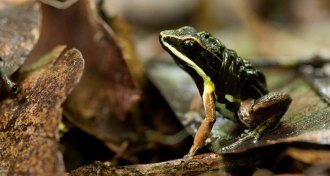 Animals
AnimalsRainforest frogs flourish with artificial homes
A rainforest frog population grew by about 50 percent when scientists built pools for tadpoles that mimic puddles made by other animals.
-
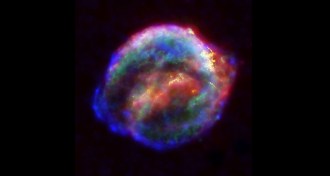 Astronomy
AstronomyAsteroids or planets might trigger a supernova
Rocky debris falling onto a white dwarf might trigger some supernovas.
-
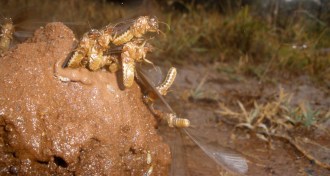 Ecosystems
EcosystemsTermite mound paradises help buffer dry land against climate change
Landscapes dotted by Africa’s great termite mounds look on the verge of turning into desert but are, in fact, more resilient.
By Susan Milius -
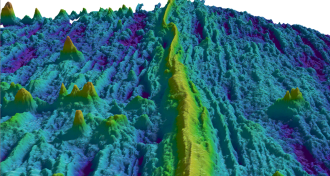 Earth
EarthIce ages boost production of new ocean crust
When sea levels drop during ice ages, magma at mid-ocean ridges surges.
-
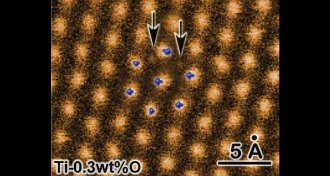 Materials Science
Materials ScienceOxygen sneaks into titanium, making it brittle
Oxygen atoms trigger defects in titanium’s atomic structure, making the metal brittle.
By Beth Mole -
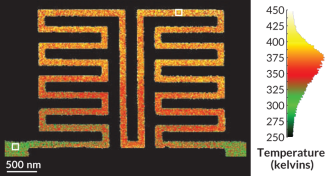 Physics
PhysicsTemperatures taken in the realm of the tiny
Aluminum and other materials can serve as their own thermometers at nanometer scales, opening up the possibility of taking the temperature of tiny computer transistors.
By Andrew Grant -
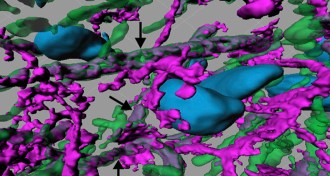 Neuroscience
NeuroscienceShots of brain cells restore learning, memory in rats
Scientists healed damage caused to rats’ brains from radiation by injecting cells that replenish the insulation on neurons.
-
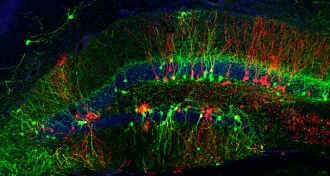 Neuroscience
NeuroscienceWith good timing, experiences can rewire old brains
New experiences can rewire old brains — but the timing has to be just right.
-
 Health & Medicine
Health & MedicineE-cigarettes lower immunity to flu and other germs
Electronic cigarettes produce substantial amounts of lung inflammation, a new mouse study finds. They may also reduce the ability to fight off infections from strep and flu germs.
By Janet Raloff -
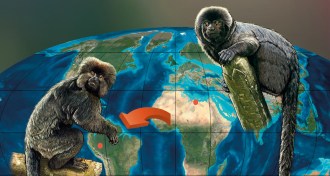 Paleontology
PaleontologyMonkeys reached Americas about 36 million years ago
Peruvian fossils suggest ancient African primates somehow crossed the Atlantic Ocean and gave rise to South American monkeys.
By Bruce Bower -
 Earth
EarthGeologists discover tectonic plate’s slippery underbelly
Slippery layer of partially melted rock underneath tectonic plate revealed using reflected dynamite blast vibrations.